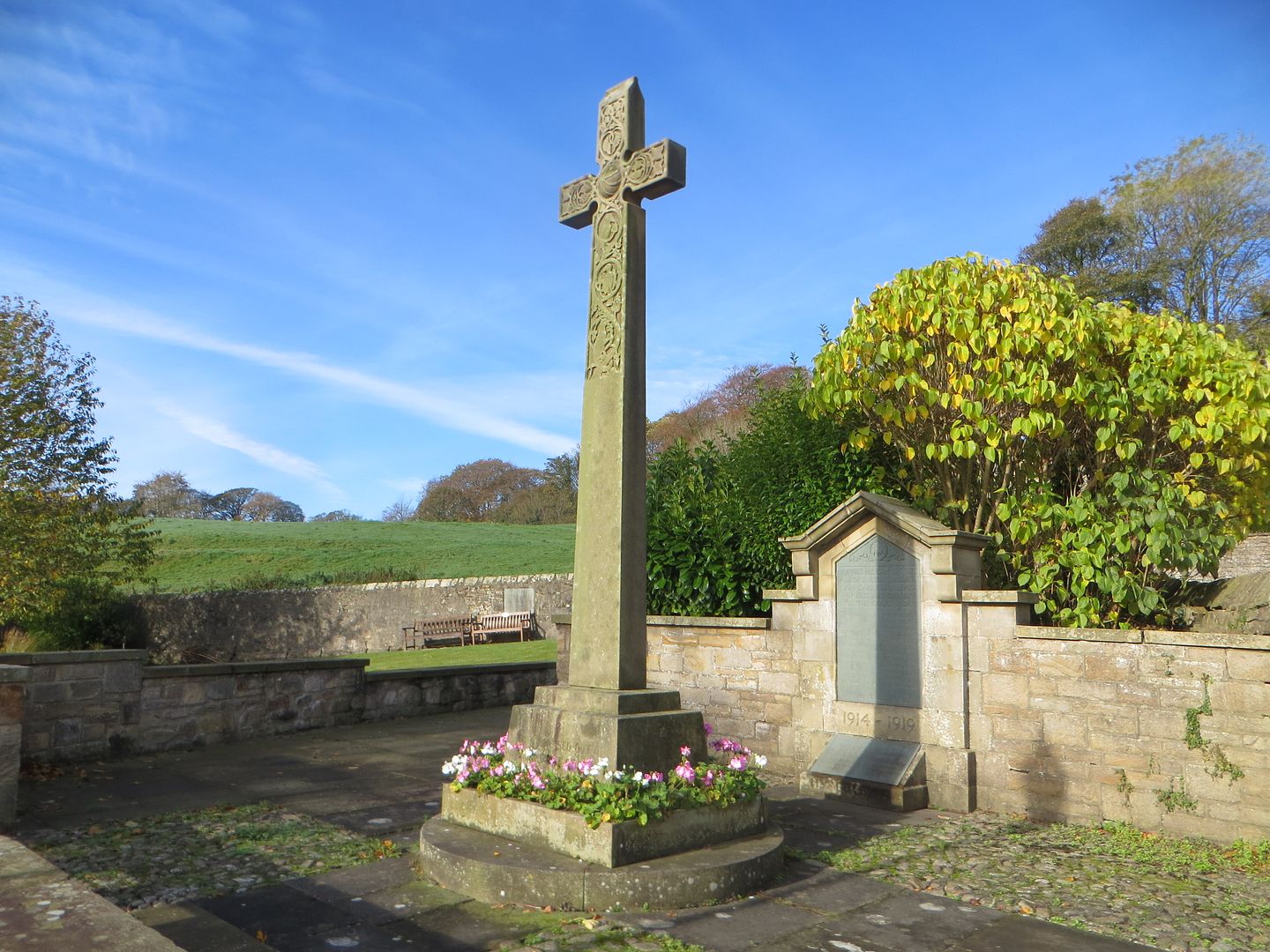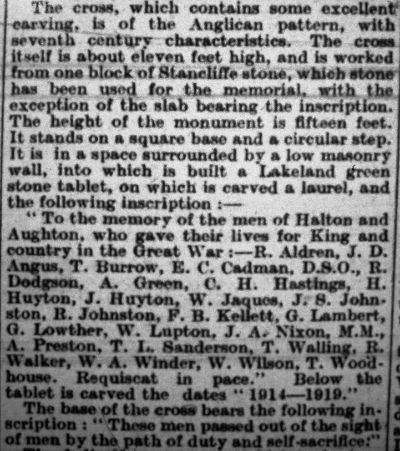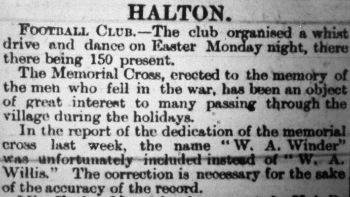HALTON HERO HOME.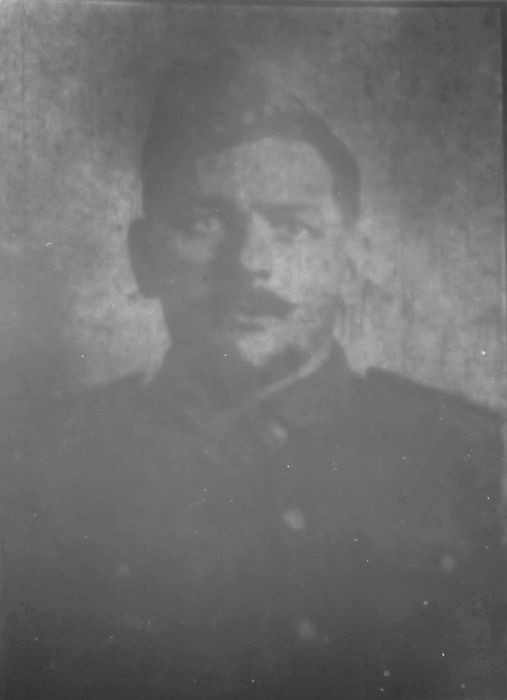 LANCE-CORPORAL RICHARD JOHNSTONE
LANCE-CORPORAL RICHARD JOHNSTONERain was drizzling through the darkness of the December eve when a burly form stepped out of the train at Halton Station on Saturday night. He is one of a family of four generations respected in the Lunesdale village. Heartily greeted by many friends, 8249 Lance-Corporal Richard Johnstone, of the Royal Scots Fusiliers, has been invalided home from the war, and to use a localism "they've taken summat out of him." Rheumatism and bronchitis, the first fruits of flooded trenches, were the immediate cause of his physical debility, but he also bears a tear in the pack which the entrance of a German bullet left as a mememto of a narrow escape. The privations of the Belgian children, and also the children in Northern France, have made more tender the hearts of these brave Britishers, and one of his little ones determined to make the most of his furlough clung tenaciously to "Daddy" though rheumatism or bronchitis penalised him. He plodded up to Kirkby-terrace, and there gave a Guardian representative the chance of a chat about the War of Wars.
Lance-Corporal Johnstone served three years in the Scots Fusiliers Cycling Section, and has been on the reserve about eight years. He worked for the L. and N. W. Railway for three years, and then joined the police force at Barrow-in-Furness, where he has been five
when the Britishers arrived there, were shooting skywards into villages in the suburb of the town, and every effort was being made to terrorise the people by the onslaughts of the Uhlans and the terrific cannonade. Lance-Corporal Johnstone was one of the cyclist and despatch riders of the 3rd Division, commanded by General Hamilton before he was killed. The Mons story has often been told - how the Britishers were met by a force ten or twelve times their number, and decided to pocket their pride and retreat fighting bravely rearguard actions, as this was believed to be the best way to stop the great march to Paris. The troops never rested. As soon as the 3rd Division reached Braisne they became the advance guard, and there were many hazardous journeys for the despatch riders as they came in touch with the patrols of the enemy. They had Braisne for headquarters about 21 days, and left it to get a rest at La Bassee. It was understood that they would guard the lines of communication, but the Germans tried to break through at Arras where the French were holding the lines, and the 3rd Division were sent back to assist the Frenchmen, stiffening their defence till the Kaiser's forces gave up that little hope of spending Christmas in Paris. Lance-Corporal Johnstone was next engaged at La Bassee, and had a busy time in company with Indian troops, who had then reinforced the British. He speaks in highest commendation of their wonderful efficiency as patrols. "They are marvellous chaps! Absolutely without fear. You cannot realise what their daring leads them to."
The Lance-Corporal produced a big bullet, flat at one point, and a relative explained that it had been taken from his neck.
Pressed to describe the incident in which he had a narrow escapr, as three comrades were killed alongside, he said "We were just outside La Bassee when a shrapnel shell burst. This bullet struck a wall and ricocheted into the back of my neck, burying itself. Fortunately that's the only wound I have had. I was taken to hospital. The doctors extracted the bullet, bandaged me up, and I soon went back to duty.
That's how a British Tommy makes light of his wounds, and it is an example of the splendid heoism shown by our forces.
From La Bassee the next trek was to Hazebruck, and thence to Ypres, the place which has made history, as the Kaiser knows to his cost. The Lance-Corporal agrees that Ypres has been the severest test to the British. Every man was needed, and he was in the teenches 19 days "Mid snow and ice" up to the ..... they fought in an "Excelsior" spirit, until stricken with rheumatism in sheer exhaustion and pain, the Lance-Corporal with others was taken to hospital at Ypres, and thence down to Boulonge
[sic], which he reached on November 18th. Then returning strength permitted him to be sent to the base hospital at Rouen, and on December 5th he reached the Edgbaston University Hospital, Birmingham. He was granted a short furlough last week, and has been seeing relatives and friends at Halton and Barrow.
Like many returned heroes lance-Corporal Johnstone speaks of the Germans with disgust. They are cowards, and won't stand to fight square. I would not like to describe all I have seen, but the condition of some of the people in the villages after the Germans had paid a visit
Poor things! ...... people have suffered.
There was a break in the voice, and a spasm which indicated how the heart within the big frame was stirred to its depths by memory's pictures. It is quite true that the Germans get human shields whenever possible. The enemy's gunners, when they find the mark, stick to it, not giving their shells credit for doing much damage. They waste tons of ammunition in this way. In one place they fired 1,000 shells and only killed two people. The Germans are in a plight at Ypres. Thousands of them are surrounded by floods and cannot get away. They have tried to use rafts and boats, but they have always been destroyed.
The Belgian children have great faith in the British Tommies, and come and ask for a share of their rations. On their way to the trenches they have sometimes been wounded, children losing legs. The food suplioes to the British Army have been fairly good, though when pressed men have missed their meals for two days, through the Germans shelling a commissariat column. The men at the Front have a grievance in regard to patrols sent out by individuals. Lance-Corpl. Johnstone had regular supplies of cigarettes, &c, sent out, and only got two packets all the time. His letters seldom came, and some of them were intimations of parcels on their way, so it would seem as if there's need for a little inquiry as to who is lining his pockets at the expense of members of the Expeditionary Force. When the supply of tobacco ran out the men had dried tea leaves and herbs. Amongst the local men in the same regiment, Pte. Wallis, of the 2nd Battalion, was killed, and Pte. T. Woodhouse is also serving. He went from Gibraltar to the Front. Lance-Corpl. Johnstone had not met them. Only about 20 men of the battalion who first went out are reported to have escaped death or wounds.
The French artillery is now working havoc amongst the Germans, and if the infantry was as good things would move quicker towards Berlin.
(Lancaster Guardian, 26 December 1914) ____________________________________________________________
26260 Pte. James Dowbiggin Angus, Royal Scots, son of Mr. J. Angus, Halton, has been wounded in an unusual manner. Mrs. Angus received a letter from a chum of her son, stating that he was out with a working party on the evening of February 18th, when they were called in hurriedly, and while James was getting into the trench he slipped on a bayonet, which entered the thigh. On Sunday James wrote himself, saying he was progressing favourably. Pte. Angus joined the colours in July last, and went out to France on December 15th. He served his apprenticeship in Lancaster as a printer, afterwards working at Kendal, where he joined the colours. He is an old boy of Slyne and Bowerham schools, and was the organist to the Congregational Sunday School and assistant organist to the Congregational Chapel at Halton.
(Lancaster Guardian, 4 March 1916)____________________________________________________________
16565 Private Lawrence Wilkinson, 8th King's Own (Royal Lancaster Regiment). Killed on 2nd March 1916, aged 34.A Haltonian, who has friends in Skerton, is reported to have been killed while serving with the 8th King's Own, on March 2nd, viz. Pte. L. Wilkinson. He was 34 years of age, and spent his boyhood at Halton, but was employed at Ulverston Ironworks when he enlisted. He leaves a widow and three children, who live at Ulverston.
(Lancaster Guardian, 18 March 1916)____________________________________________________________
 May 1915
May 1915____________________________________________________________
Halton Soldier in Hospital.An official report has been received by Mrs. Burrow, Kirkby-terrace, Halton, that her son, T. Burrow, is confined to the 28th General Hospital, Salonica, sick. He joined the 2nd Battalion R.L.R. in February, 1915, and was drafted out to France on May 7th, 1915. He was wounded at Ypres on July 23rd last, and was confined to hospital in France for some time. He was afterwards transferred to Egypt, and is now stationed at Salonica.
(Lancaster Guardian, 10 June 1916)____________________________________________________________
MEMORIAL SERVICE. - On Tuesday, at St. Wilfrid's Church, a memorial service to Lord Kitchener was held. Rev. J. H. Hastings spoke in eloquent terms of the departed Field Marshal. There was a large congregation.
FOR OUR SOLDIERS. - Under the direction of Miss Marjorie Bateson, on Saturday, children indulged in Maypole dancing round the village, singing the National Anthem and those of our Allies. Miss Mary Hayton was the "Queen," and the children presented a bright al fresco entertainment. The effort raised £1 0s. 7½d. for soldiers' comforts.
(Lancaster Guardian, 17 June 1916)____________________________________________________________
HALTON D.C.M.Private Thomas Morgan Simner, 31st Battalion, Canadian Infantry. Born 17th April 1881. Husband of Eliza Simner, of Halton.
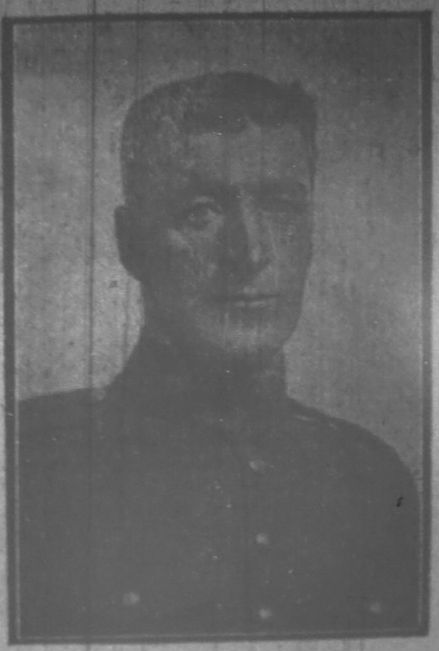 Pte. T. M. Simner.
Pte. T. M. Simner.News reached Halton last week that 79973 Pte. T. M. Simner, 31st Battalion, 6th Brigade, Canadian Contingent, has been recommended for the D.C.M. for devotion to duty in the field. Pte. Simner has been in hospital for a few days with influenza, but his wife has received a cheerful letter this week, assuring her of his recovery. Prior to emigrating to Canada six years ago, he was employed as a joiner at Moor-lane Mills, Lancaster, but lived at Halton, where his wife and daughter still reside. Whilst at Lancaster he took an active interest in Oddfellowship, holding the Past Grand degree in the "Duchess of Lancaster" Lodge. After the war broke out he joined the 2nd Canadian Contingent at Medicine Hat, proceeding to Calgary for training. He was home on furlough last September, crossing to France soon after his return. Twice previously he had been complimented for his bravery as a stretcher bearer.
(Lancaster Guardian, 24 June 1916)____________________________________________________________
 September 1916
September 1916____________________________________________________________
446784 Private John Hayton, 50th Canadian Infantry. Died from wounds on 24th October 1916, aged 34. Son of James and Agnes Hayton, of Si]verdale.The Canadian Record Office notify the death from wounds of another Haltonian, 446,784 Pte. John Hayton (33), of the Canadian Infantry at Etaples, France, on Oct. 24th, and have expressed sympathy with his widow, Mrs. Hayton, Woodside, Halton. He had received a gunshot wound in the thigh, and was previously reported on Oct. 23rd to be seriously ill in the same hospital.
Hayton emigrated to Canada six years ago after his brother-in-law, Pte. T. M. Simner. Joining the Canadian forces in May, 1915, he returned to the Old Country in April, and went out to France in August, 1915. He was coachman to Mrs. Harris, of Halton Park, and previously to that was with the late Dr. Helme. His father resides at Silverdale. He leaves a widow and one child.
(Lancaster Guardian, 4 November 1916) John Hayton is not named on Halton's memorial.____________________________________________________________
